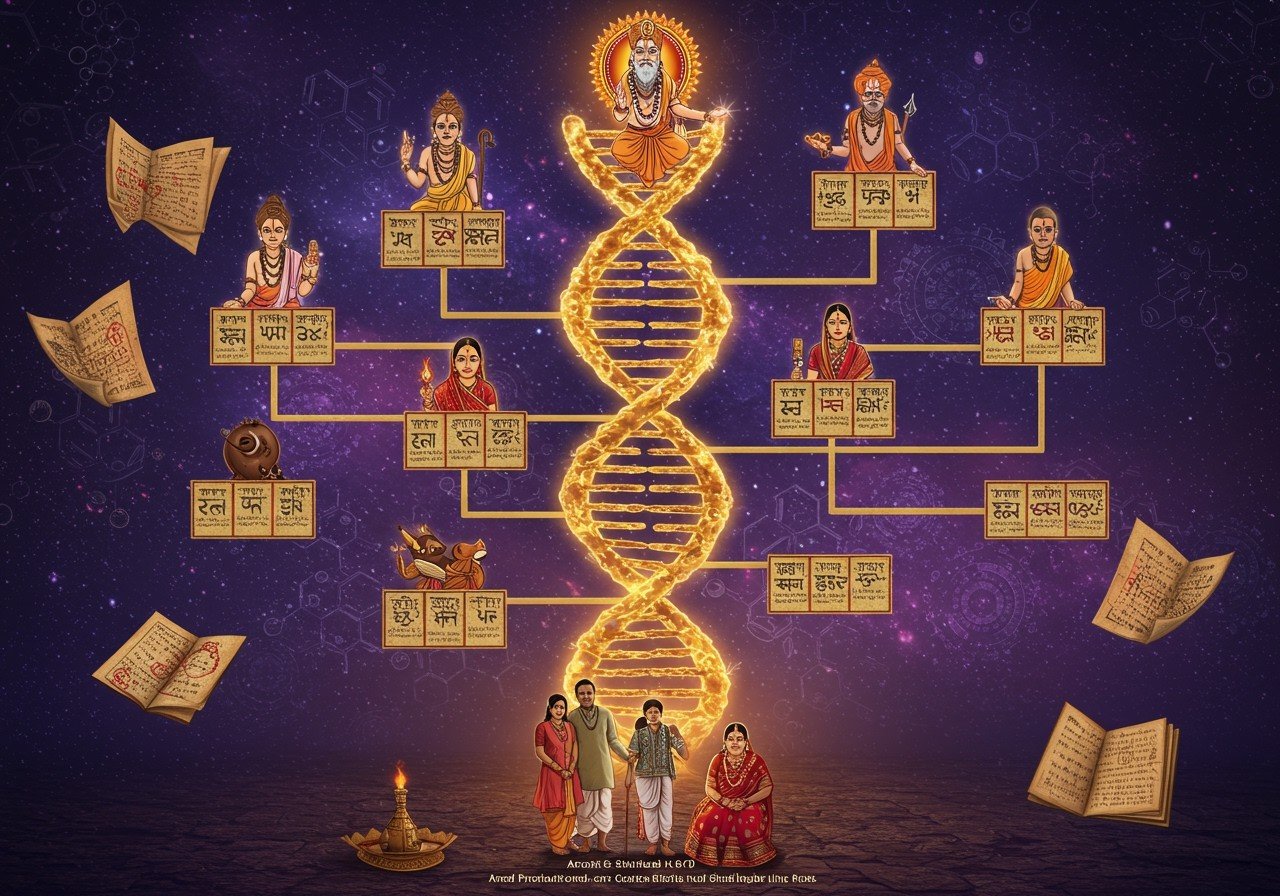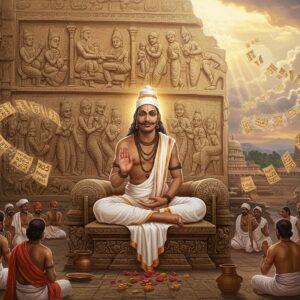
In Hindu culture, Gotra signifies a person’s lineage or clan, deeply intertwined with their birth and identity. This ancient system holds immense cultural and spiritual weight, especially in marriage and religious ceremonies. It serves as a method of upholding lineage purity, demonstrating a fascinating intersection of tradition with scientific and genetic principles.
Delving into the Meaning of Gotra
Gotra is a patrilineal system, tracing one’s descent from a shared ancestor, often a revered sage or ‘Rishi’. This system traditionally helps prevent marriages within the same lineage, showing an intuitive understanding of genetics and its role in preventing potential health issues. While generally passed from father to child, there can be variations and regional customs in this practice. For a deeper understanding of Dharma and Karma, see our blog post Dharma and Karma in Hinduism Explained.
Gotra and DNA: Bridging Tradition and Science
Gotra, this time-honored lineage system, beautifully connects ancient traditions with the marvels of modern genetic science. Each Gotra originates from a ‘Rishi’, a sage of antiquity. Traditionally, it promotes exogamous marriages—marrying outside one’s Gotra—as a way to minimize the risk of genetic disorders. This practice reveals a remarkable early grasp of genetic principles.
Gotra and the Y Chromosome
The Gotra system, being patrilineal, often aligns with the inheritance pattern of the Y chromosome, passed from father to son. Just as the Y chromosome plays a crucial role in tracing male ancestry, Gotra serves as a traditional marker of lineage. Marrying outside one’s Gotra fosters genetic diversity, which is known to reduce the chances of recessive genetic disorders.
Modern Science Illuminates Ancestry
Modern DNA testing provides fascinating insights, sometimes showing that individuals within the same Gotra may actually have different paternal lineages (different Y-chromosome haplogroups). This discovery indicates that while Gotra carries genetic implications, it might not always perfectly align with biological ancestry, suggesting a complex interplay between tradition and genetics.
The Spiritual Essence of Gotra
Beyond genetics, Gotra also embodies a spiritual lineage. It can represent the passing down of knowledge and tradition from a teacher to a student, not solely through biological inheritance. This perspective highlights the deep cultural and spiritual significance of Gotra, transcending purely genetic interpretations.
Gotra and Marriage: A Time-Honored Practice
Traditionally, marriages within the same Gotra were discouraged to avoid unions between close relatives. In contemporary times, with a rise in inter-caste marriages, the role of Gotra in marital decisions is evolving. If you are interested in exploring the global reach of Hinduism and diverse marriage traditions, you can read more in Hinduism’s Global Reach: A Look at Its Diverse Traditions.
Honoring Gotra Traditions with Poojn.in
At Poojn.in, we understand the importance of preserving traditions. We offer a wide selection of items for your rituals and ceremonies, including the sacred Red Cotton Kalava (Raksha Sutra), an essential element in many Gotra-based ceremonies. This traditional thread is available at ₹15.00. For those seeking spiritual connection, we also offer the Original Tulsi Kanthi Mala.
Embrace the Harmony of Gotra
Gotra, with its rich tapestry of tradition and the illuminating insights of modern science, forms a unique bridge between our past and present. It reveals how ancient wisdom can align with contemporary understanding, creating a narrative interwoven with cultural and genetic threads. By honoring both the spiritual and scientific dimensions of Gotra, we celebrate a heritage that shapes our identity and relationships. This exploration of lineage and knowledge reminds us to cherish ancestral wisdom while embracing modern understanding, deepening our connection to our roots and ourselves.
*Price and availability of products subject to change. Please visit our website for the latest information.*


